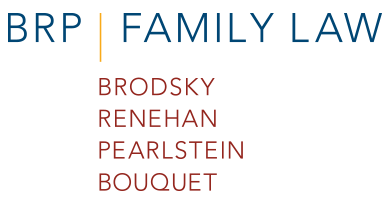
When marital discord evolves, turning into anger and hatred, many couples decide divorce is the best solution. While this may be an easy way out for the couple, it can cause significant upheaval in their children’s lives.
Many parents seek assistance from the Maryland state court, and family court judges can assign mental health professionals as custody evaluators to help parents ensure the best interests of their children. It is important to note that these professionals can easily identify physical child abuse. However, emotional abuse is more challenging to identify.
While true, it plays a huge role in a child’s happiness and ability to adjust to their new normal after divorce. When parental alienation is identified, it can also be alleviated.
If you believe parental alienation plays a role in your child’s life, now is the time to act. If you are unsure what legal options you have, our experienced child custody attorney can help.
What Is Parental Alienation?
Parental alienation, unfortunately, is not unusual. It occurs when a child’s parent intentionally or unintentionally influences the child against the other parent, causing the child to reject, fear, or disdain the alienated parent without justification. This psychological manipulation may have profound long-term effects on the child and the alienated parent’s relationship, leading to a breakdown in family dynamics.
The Signs of Parental Alienation
Identifying parental alienation early is crucial. Some warning signs include:
- The child unjustly criticized or insults the alienated parent.
- The child exhibits strong allegiance to one parent over the other without a valid reason.
- The child vehemently denies being influenced by the alienating parent.
- The alienating parent restricts the child’s communication with the other parent.
- The child’s animosity directed at the alienated parent spreads to that parent’s extended family.
The Impact on Child Custody
Courts take allegations of parental alienation seriously because they reflect on the best interests of the child, which is the guiding principle in custody decisions. A child custody attorney may help demonstrate how parental alienation is affecting the child and will work toward a custody arrangement that prioritizes the child’s emotional and psychological health.
Your Rights and How to Address Parental Alienation
As a parent, you have the right to maintain a loving and positive relationship with your child, free from manipulation. If you suspect you’re a victim of parental alienation, there are steps you can take:
- Document the Behavior: Record instances that suggest parental alienation, including texts, emails, and detailed notes about interactions with your child and your co-parent.
- Seek Professional Help: Engage a therapist who specializes in parental alienation. He/she may support you and your child and may serve as an expert witness if necessary.
- Consult with a Child Custody Attorney: Legal guidance is imperative. An experienced child custody attorney will advise on the appropriate legal actions, including court intervention to modify custody arrangements.
- Stay Involved: Continue to reach out to your child in a loving and supportive manner, regardless of his/her current feelings toward you. Maintaining a presence in your child’s life is essential, even if it’s challenging.
- Educate Yourself: Learn about parental alienation, its effects, and response strategies. The more informed you are, the better you can navigate the situation and protect your relationship with your child.
- Never badmouth the Other Parent: Even though the other parent is taking steps to damage your relationship with your child, you should not engage in the same type of behavior. Speaking negatively about the other parent will only further damage your relationship with your child and create more stress for him/her.
The Role of a Child Custody Attorney
A child custody attorney is invaluable in cases of parental alienation. Their expertise can differentiate between a prolonged battle and a swift resolution that puts your child’s best interests first. They will help by:
- Providing legal counsel on your rights and the best course of action.
- Gathering and presenting evidence of parental alienation to the court.
- Advocating for custody arrangements that best serve the child’s emotional needs.
- Working with psychologists or counselors to support your child’s well-being.
- Seeking court interventions to prevent further alienation.
Legal Strategies Against Parental Alienation
The legal response to parental alienation may involve a variety of strategies, including:
- Requesting a detailed custody evaluation by a mental health professional.
- Seeking a court order for family therapy with a therapist experienced in resolving alienation.
- Asking the court to enforce, modify, or create new custody and visitation orders to protect the child’s relationship with both parents.
The Importance of Acting Promptly
Time is of the essence in cases of parental alienation. The longer the behavior continues, the more challenging it can be to reverse its effects. Early intervention by a qualified child custody attorney can help safeguard the child’s psychological health and the parent-child relationship.
Dealing with Parental Alienation: Your Legal Options and Rights
Parental alienation is a distressing reality in some child custody disputes, but recognizing the signs and understanding your rights can lead to decisive action to protect your relationship with your child. Brodsky Renehan Pearlstein & Bouquet is dedicated to supporting families through these intricate and sensitive matters. With the assistance of a skilled child custody attorney, you can confront parental alienation head-on, ensuring that your child’s best interests remain at the forefront of all legal proceedings.
As advocates for the bond between a parent and a child, we emphasize the importance of professional guidance. If you are dealing with parental alienation, know that you are not alone, and there are legal remedies available. Contact us to discuss how we can help you navigate these turbulent waters and restore a healthy, loving relationship with your child.






